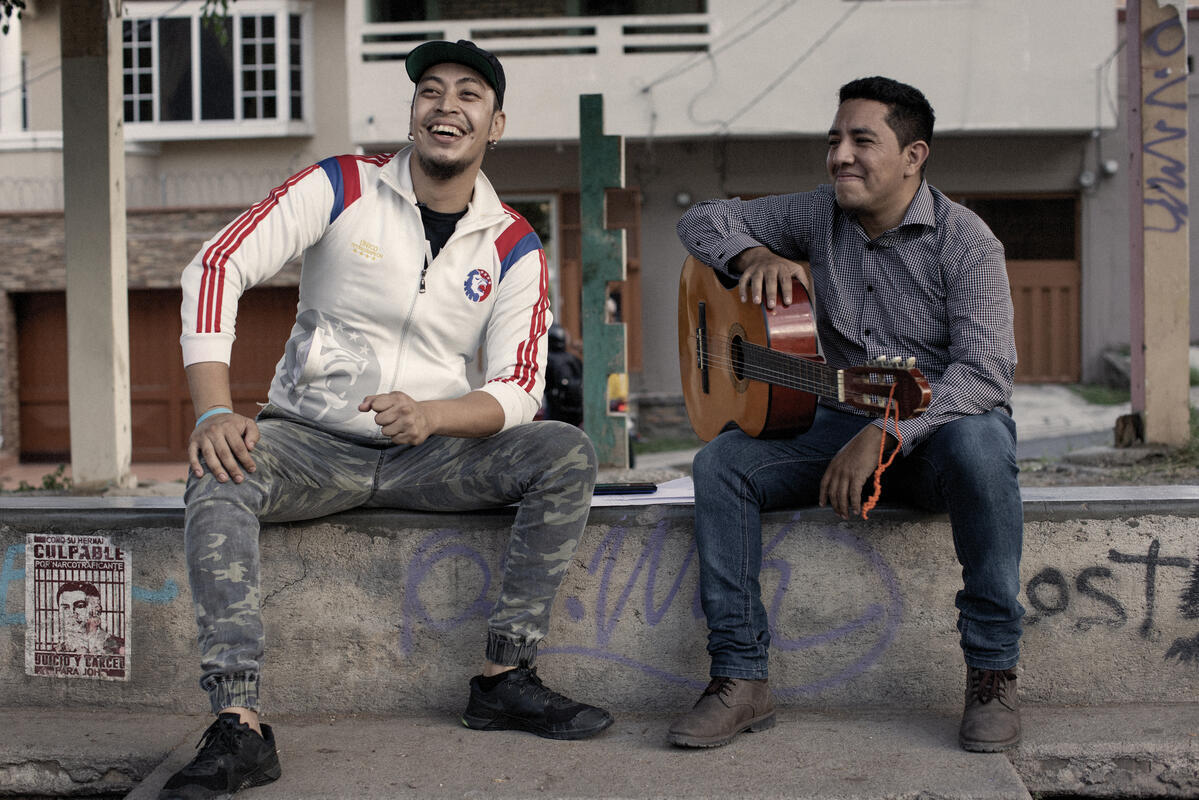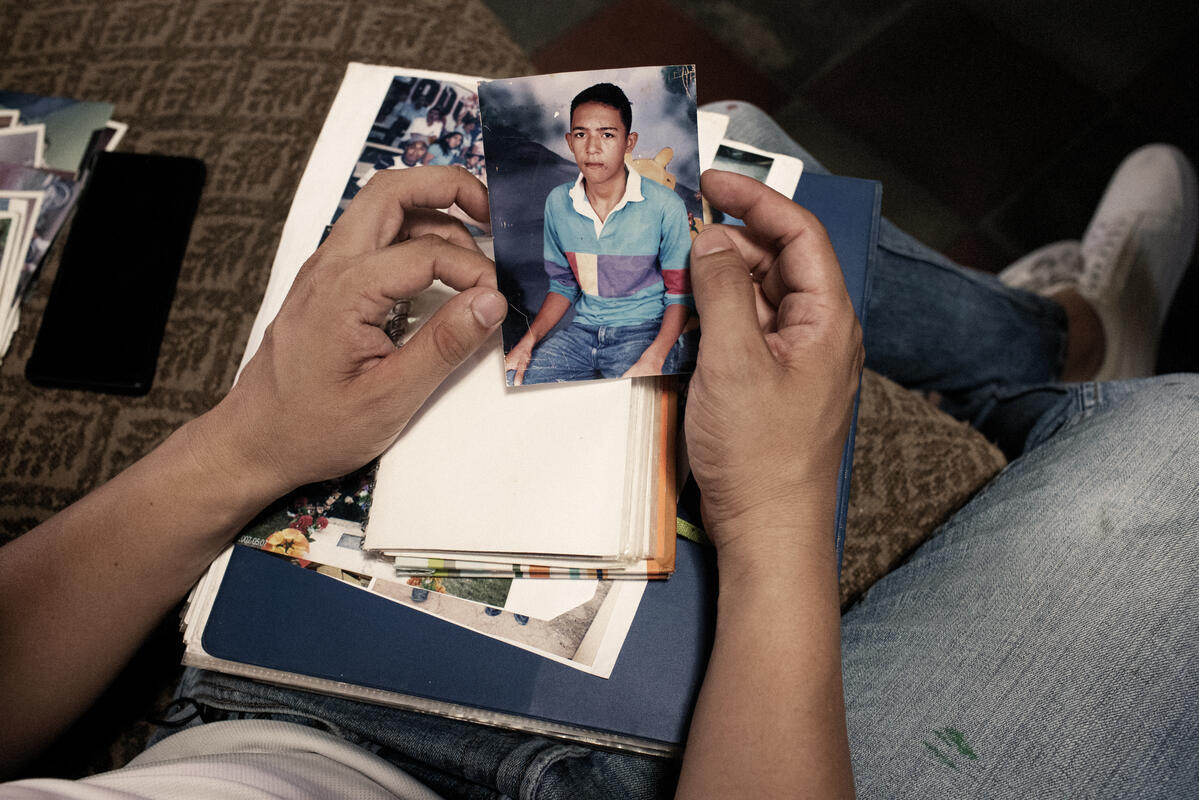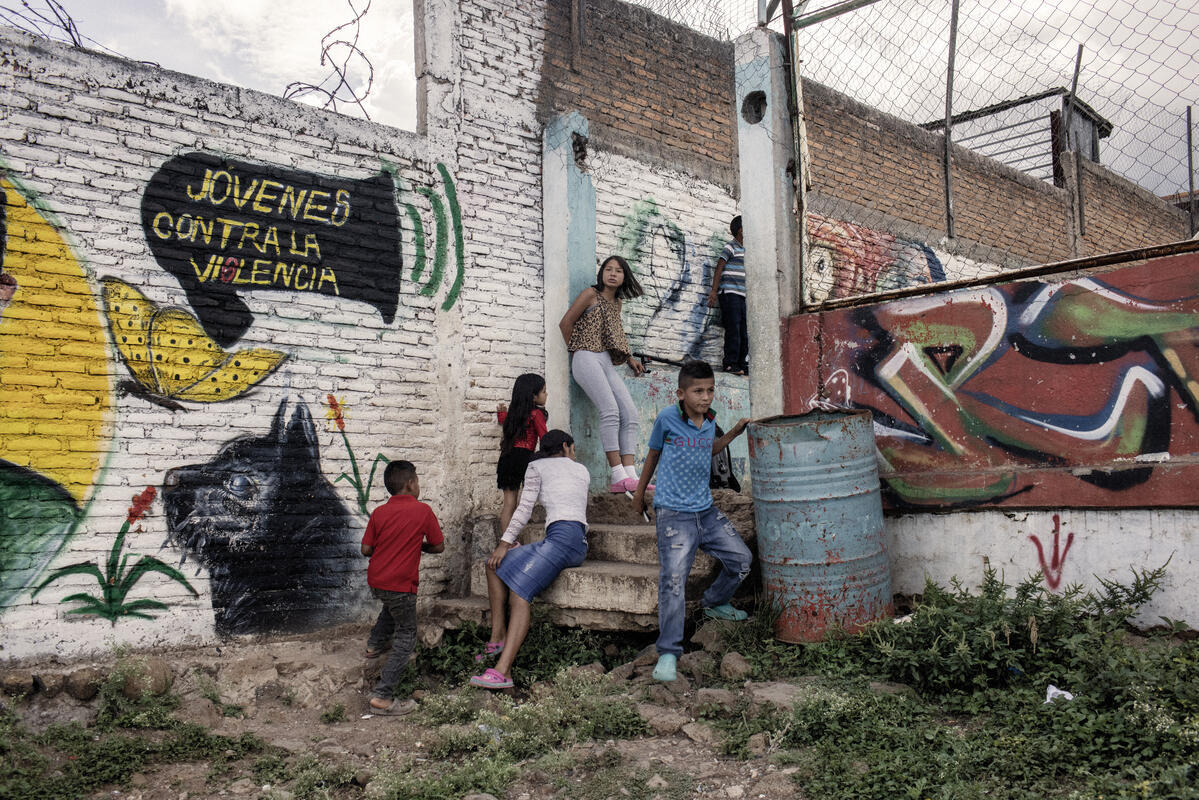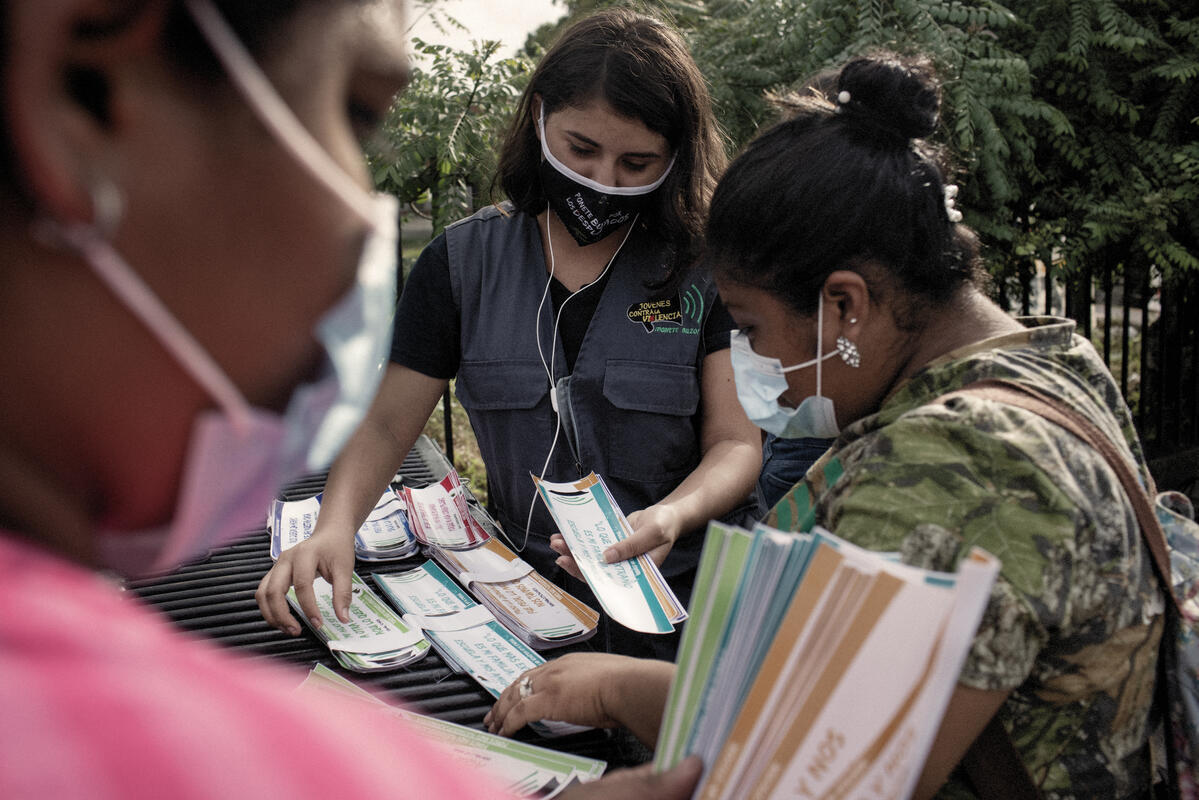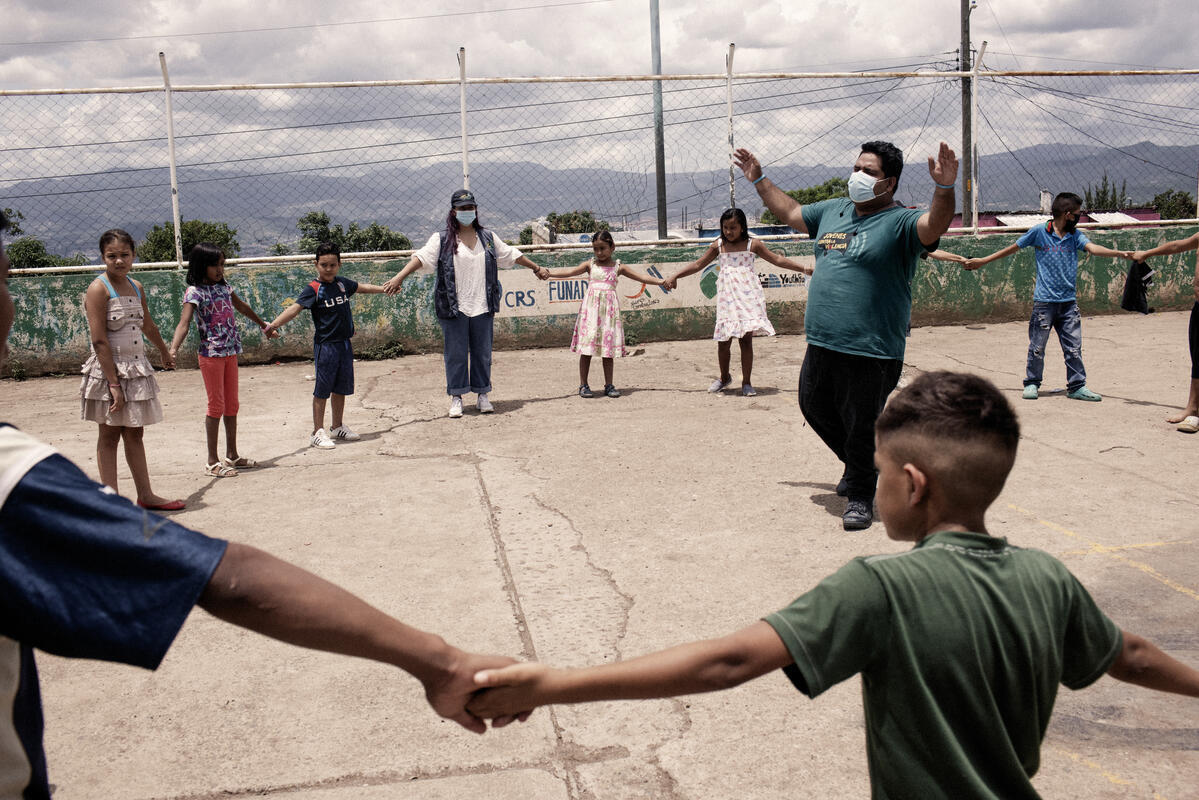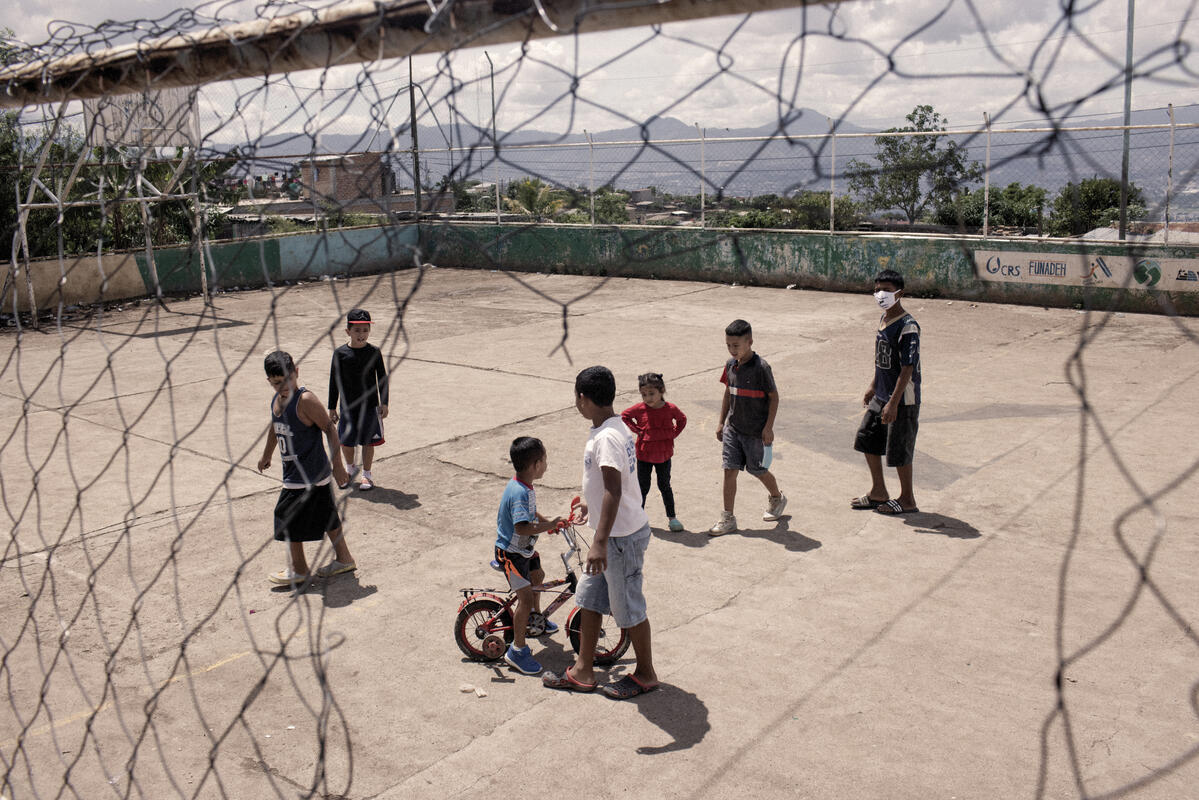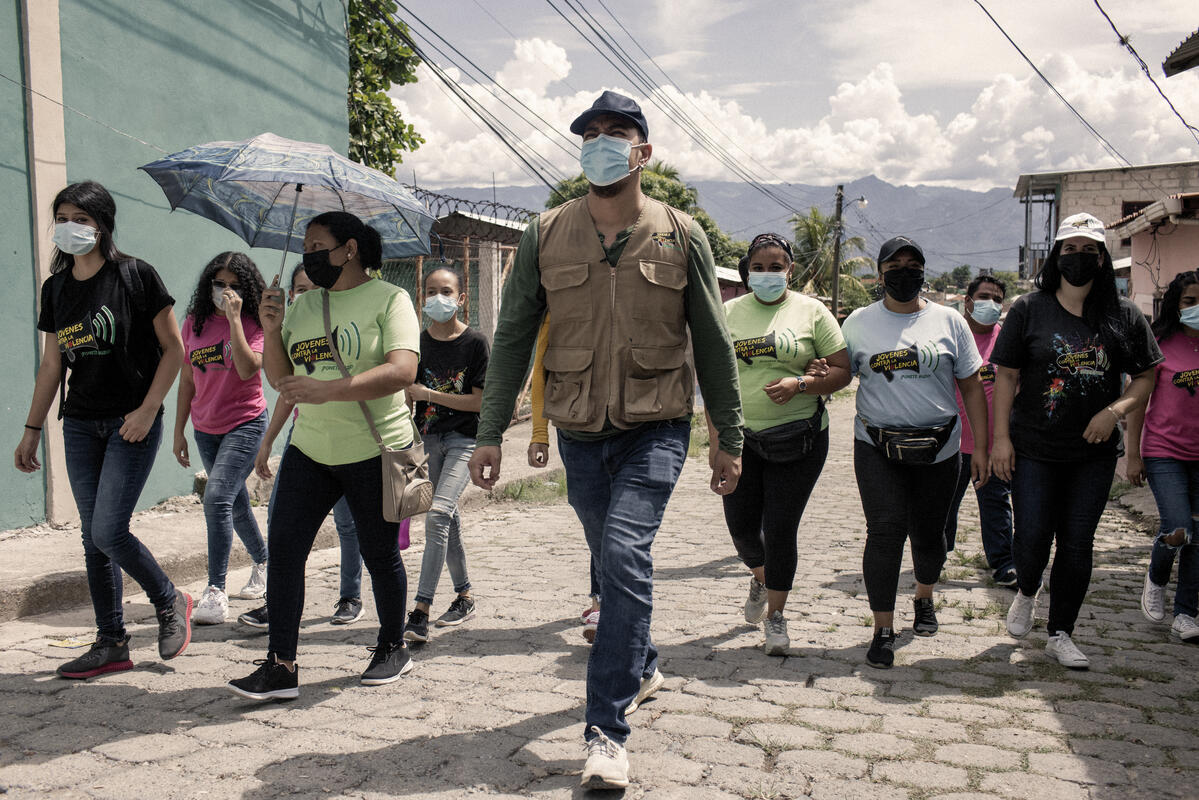Honduran man devotes life to rescuing young people from deadly gangs
When he was in his early twenties, Santiago Ávila had but one thing on his mind: music. As the singer in a heavy metal band, music dominated his life to such an extent that it largely obscured many of the harsh realities of life in his home city of Tegucigalpa, the Honduran capital, where armed gangs are widespread and the refusal to carry out their bidding often proves fatal.
But 11 years ago, that reality pierced Santiago’s musical bubble, and his world came crashing down. His 16-year-old brother, Mauricio, the second-youngest of Santiago’s four siblings, was brutally murdered by a local gang after a relative failed to pay a debt to one if its members.
“When my brother was killed, everything fell apart,” said Santiago, now 33. “My family is still mourning.”
But the family’s hardships did not end with Mauricio’s death. Soon afterwards, Santiago’s third-youngest sibling broke the unwritten code of conduct in gang-dominated neighbourhoods by lashing out at a gang member who had robbed his girlfriend. Fearing reprisals from the gang’s leaders, the Ávilas fled their home in Tegucigalpa’s Nueva Capital neighbourhood to what they hoped would prove a safe area in a far-flung region of Honduras and, later, abroad.
Endemic violence has forced at least 247,000 Hondurans into internal displacement while another 185,000 are estimated to have fled the country. In both cases, people often run with little more than what they can stuff into a backpack.
" I felt it was cowardly to just leave without trying to do something for others."
In the wake of his family tragedies, Santiago found himself consumed by thoughts of young Hondurans like his brothers –who all too often see their dreams and futures cut short by violence, or are forced to leave everything behind. Within about a year of Mauricio’s death, Santiago decided to return to Tegucigalpa to work with young people in need. He went on to help found Jóvenes Contra la Violencia, or Youth Against Violence, an organization that works to give vulnerable young people an alternative to the gangs through activities, structure and support.
“I felt it was cowardly to just leave without trying to do something for others,” said Santiago, adding that he was driven by a need to “try to save the lives of young people, so they don’t have to go through what my brother did, nor what I did.”
For his work carving out safe spaces for children and teenagers – many of whom have already endured internal displacement or are at risk of being forced from their home communities by gang violence – Santiago has been chosen as the regional winner for the Americas of the UNHCR Nansen Refugee Award, a prestigious annual prize that honours those who have gone to extraordinary lengths to support forcibly displaced and stateless people.
In the decade since its founding, Jóvenes Contra la Violencia has grown from a ragtag group of young people, meeting in cafes to strategize about how to go about breaking the seemingly endless cycle of violence, to a prominent and respected organization with a seat at the tables of power. The group’s basic aim is to give young people, whose tumultuous home life and dismal prospects might make them prime recruits for gangs promising easy money and status, a sense of belonging that allows them to resist the gangs’ advances.
Some 400 volunteers ply the streets of some of Honduras’ diciest cities and neighbourhoods, seeking to bring children, teenagers and community leaders into the fold of the organization, which offers a variety of community-building activities, sports and coaching sessions. The volunteers also reach out to families teetering on the edge of the kind of forced displacement that the Ávilas themselves faced, and work to keep them in their homes by interceding with respected community leaders.
Paradoxically, many of the youth who work with the organization are themselves the children of gang members, who are eager to keep their own kids from following in their troubled footsteps. It is partially this fact that allows the group to operate without interference or violence from the gangs they are standing up to.
"Joining Jóvenes Contra la Violencia increased my life expectancy."
While it is impossible to keep a precise tally of the number of young people who have been assisted by Jóvenes Contra la Violencia over the years, a modest estimate puts them in the tens of thousands. Alumni of the organization have gone on to become lawyers, social workers and civil servants.
“Joining Jóvenes Contra la Violencia increased my life expectancy,” said Edras Levi Suazo, 25, who joined the group seven years ago and now serves as its communications director. “I thought that by the time I reached age 20, someone would have murdered me. Jóvenes Contra la Violencia not only saved my life but it also showed me my self-worth.”
Santiago credits his family with allowing him to steer clear of the gangs. Despite the hardships sparked by Mauricio’s murder, and the trauma of internal displacement that followed, the Ávilas remained united, giving Santiago and his surviving siblings the strength they needed to resist the gangs.
“I think that my family – my mother’s love, my father’s sense of responsibility – played a fundamental role when it came down to deciding whether to join a gang to avenge the death of my brother, or to seek out a way to do something for the young people of my country,” he said, adding that his work with Jóvenes Contra la Violencia is a two-way street. While of course he gives enormously of himself, he has also received a huge amount in return.
“I’ve learned how to appreciate the little things; how to be tolerant; how to appreciate real friendship. I’ve learned how to go the extra mile,” he said. “And most importantly, I’ve learned how to listen.”


